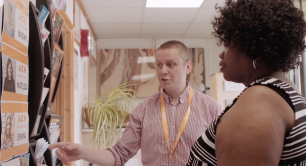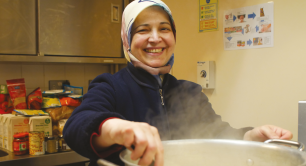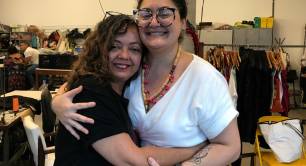How refugee entrepreneurs are surviving the pandemic
Starting their own enterprises can help refugees and immigrants to survive and thrive in their new countries. But the Covid-19 pandemic has forced many to pivot their businesses – and it has brought new challenges to the organisations that support them. Dr Sukanya Ayatakshi-Endow of Bournemouth University and Jiselle Steele of _SocialStarters explain the conclusions of recent research in Brazil, Spain and Uganda.
The first connection between _SocialStarters, a social enterprise which provides training and consultancy to social entrepreneurs, and Bournemouth University happened during late 2019 as part of an international exchange where three female social entrepreneurs from marginalised Brazilian communities travelled to the UK to participate in a series of events to share their experiences and grow their networks internationally, including speaking at Bournemouth University’s first Social Enterprise conference.
In the following months, another opportunity, led by Bournemouth University, arose for us to collaborate. This time we wanted to undertake a research study focusing on Brazil, Spain and Uganda to highlight the challenges and opportunities faced by another marginalised group in entrepreneurship – refugees and immigrants.
The qualitative research study, which initially aimed to discover whether entrepreneurship could be a route to achieve legitimacy and integration in host communities for displaced populations, was forced to evolve as a result of the pandemic that hit shortly after its first phase. Its focus shifted to being a way to document and share some of the stories of how refugee entrepreneurs were being affected by Covid-19 and whether there was an opportunity to identify and direct more support to this group at such a crucial time.
Resilience in Northern Uganda
The first part of our research took place within a Northern Ugandan camp for South Sudanese refugees and was conducted by NGO Cress UK in January and February 2020, just before the pandemic took hold of the world.
The data gathered here highlighted the significant adversity faced by the displacement camp refugees in their arduous journeys to reach the camp at Arua, Northern Uganda and the dangerous conditions many of them had fled in South Sudan.
However, what was most extraordinary was that in spite of having faced such adversity, most of the individuals we interviewed expressed a high degree of resilience and motivation to build a better life if they were able to access adequate support. This is backed up by earlier research which shows that there is a link between displacement, such as forced migration, and entrepreneurial action.
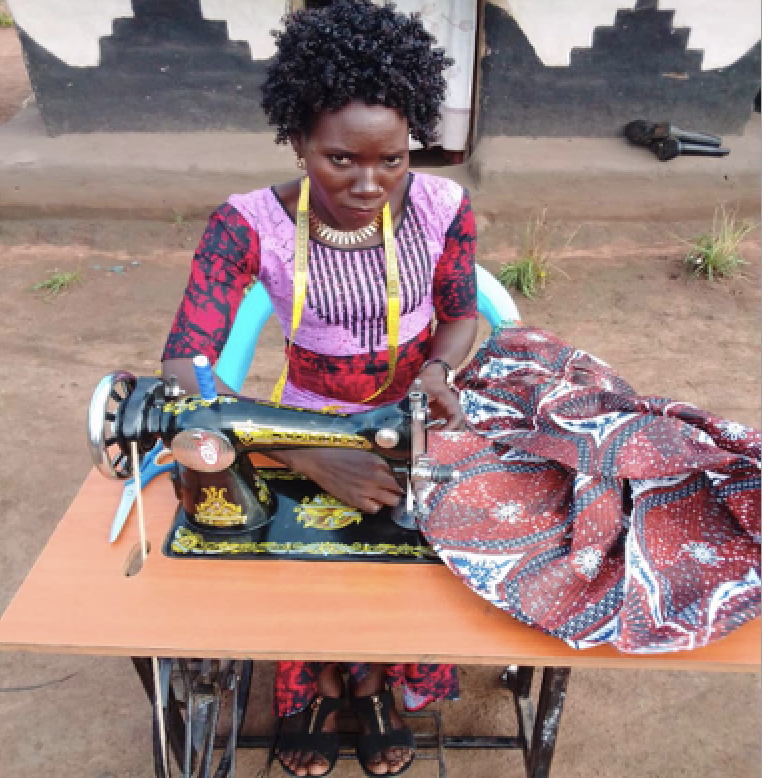 For example, Esther Yanya (pictured), a 27-year-old mother of two, shared a harrowing ordeal of walking hundreds of miles from South Sudan to the camp at Arua and finding herself in a situation as bad as, if not worse than, what she had left behind. With no access to food, shelter or security, Esther said that her circumstances would have led to disastrous consequences had it not been for the interventions provided by support agencies like Cress UK.
For example, Esther Yanya (pictured), a 27-year-old mother of two, shared a harrowing ordeal of walking hundreds of miles from South Sudan to the camp at Arua and finding herself in a situation as bad as, if not worse than, what she had left behind. With no access to food, shelter or security, Esther said that her circumstances would have led to disastrous consequences had it not been for the interventions provided by support agencies like Cress UK.
Cress UK is an NGO which supports South Sudanese refugees in displacement camps in Northern Uganda through a range of activities and projects, including entrepreneurship training, financial education and savings groups to promote financial independence. With the support of Cress UK, Esther has set up her own tailoring business and she’s now a financially independent, confident woman. She is also empowering other women in similar circumstances, through training and financial education, to become self-reliant too.
Refugee entrepreneurs in Brazil and Spain
The second part of our research engaged with refugee and immigrant entrepreneurs within the mainstream population in Brazil and Spain, and explored how the Covid-19 pandemic had affected their enterprises and ability to access support.
Talal Al-Tinawi, a Syrian refugee living in Brazil, fled his home and life as a mechanical engineer in Damascus with his wife and young child. In Brazil he set up his own catering business, as he was unable to find work in his field of expertise. It is common for refugees to have to assume new roles in their host country to navigate the institutional and legal barriers they are met with on arrival, with previous professional achievements and identities being disregarded, and their new ‘refugee identity’ taking a stronghold. Self-employment can often be a pathway for refugees to avoid the difficulties of gaining formal employment, often without legal documents and other credentials.
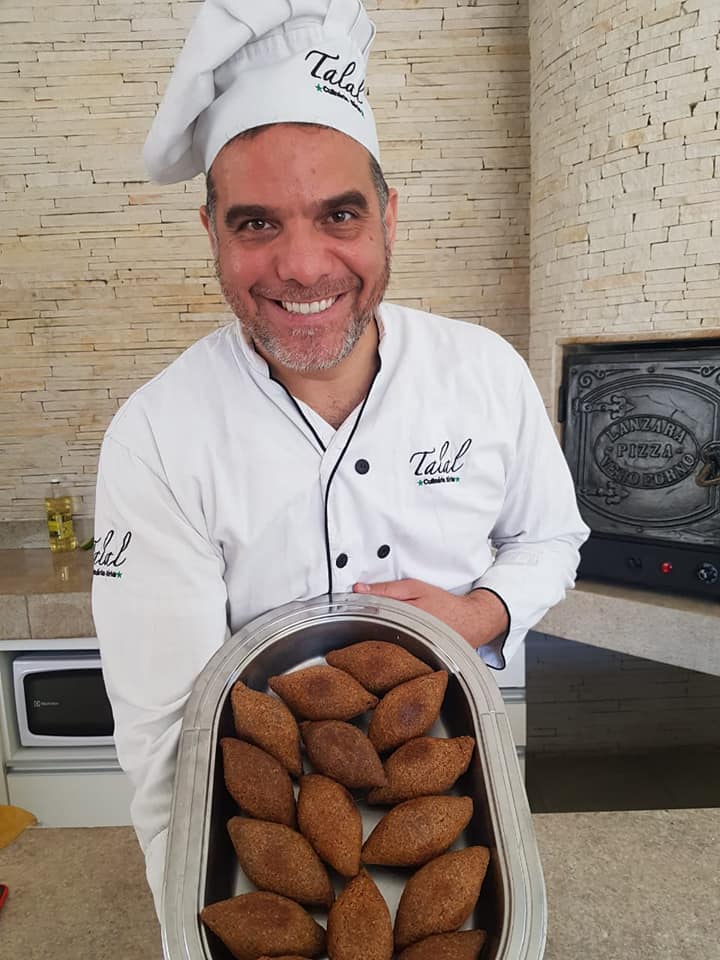 Talal (pictured) received help to set up his gastronomy enterprise Talal Culinária Síria Enterprise, from Migraflix, an enterprise support organisation that empowers refugees and immigrants from 30 countries to start their own creative and cultural enterprises, as a way of both sharing their culture with Brazilians and generating an income.
Talal (pictured) received help to set up his gastronomy enterprise Talal Culinária Síria Enterprise, from Migraflix, an enterprise support organisation that empowers refugees and immigrants from 30 countries to start their own creative and cultural enterprises, as a way of both sharing their culture with Brazilians and generating an income.
Due to lockdown and social distancing measures, Talal saw income from his catering business drop by 90%, with no events and parties to cater for, and at the time of our research he was working with Migraflix and its network of refugee entrepreneurs to identify opportunities to pivot and deliver his services online. In the meantime, Talal began working as a volunteer to support elderly people and homeless people, making packed lunches that he could sell from home and give away to people in need.
For Seydou Diop, a refugee entrepreneur in Spain, his work during the pandemic has been as much about activism as it is about making a living. After making the long and treacherous overland journey from Senegal, Seydou was shocked at the poor treatment he received in Spain from people around him as well as from local government.
“When I arrived, I lived and worked in incredibly bad conditions. My plan was to continue studying, but as we don’t have the same conventions in Senegal, it wasn’t easy to study here,” said Seydou.
Like many refugees and immigrants, Seydou struggled to navigate the legislation which meant that he had to be living in Spain for three years before applying for legal residency, and he did not have the right to work during this time. With the support of ASNUCI, a membership organisation helping refugees and immigrants to access support to integrate in Spain, Seydou has learned Spanish and started campaigning for the rights of other refugees. He has also set up his own enterprise teaching Wolof, his native language, online and in face-to-face classes.
Organisations like ASNUCI and Sindicato Popular de Vendedores Ambulantes have been working to support refugees through these difficult times as well as campaigning for changes to legislation which mean that refugees cannot access state support, have the right to work or set up their own businesses legally in their first three years of residing in Spain.
Coumba Ndeye from Senegal, who is a member of ASNUCI, hoped last year that the situation with Covid-19 would improve in time for the peak tourist season in Huelva, southern Spain where she had been able to run her own informal enterprise in the past, braiding tourists’ hair.
“[In 2019] I was able to work on the beach for two months in the summer and also set myself up on the street doing plaits in the afternoons,” said Coumba. However, work dried up soon after and the pandemic created much uncertainty for Coumba – who, with an 18-month-old daughter to care for – is worried about how to make ends meet.
In the past, Coumba received help from Cepaim, a Spanish foundation that helps refugees and immigrants access work opportunities or set up their own enterprises. However, there is now significant demand for the foundation’s services and limited resources to meet it, which means Coumba and other refugee entrepreneurs may struggle to receive the support they need.
The role of support organisations
Enterprise support organisations have been doing their utmost to adapt their services during the pandemic and respond to the needs of refugee entrepreneurs. We saw some great examples of this in Brazil. For instance, Mawon, a social business based in Rio de Janeiro, supports immigrants and refugees in Brazil to integrate into the community by setting up their own social and creative enterprises through training and mentoring. Mawon has been delivering enterprise incubation programmes online since March 2020. Mawon’s founder, Mélanie Montinard, can relate to many of the entrepreneurs she works with as she was forced to leave Haiti after witnessing the massive destruction of the earthquake in 2010 and started a new life in Brazil through entrepreneurship.
Brassau is a social impact business supporting international immigrants and refugees arriving in Brazil, with a focus on those of African origin. Founded by Débora Gonzaga, Brassau works to assist refugees and immigrants to gain settled status which will enable them to gain citizenship and access to employment, running workshops, providing consultancy and liaising with immigration departments on behalf of their clients.
To be able to offer a service across Brazil, Débora had always been committed to working with her clients in person and online, although this shifted to 100% online when the pandemic hit. As, Débora says, only 5% of municipalities in Brazil offer support services to refugees and migrants, Brassau has been a critical pillar of support during an extended period of uncertainty and delays to immigration applications and processes due to lockdown measures in Brazil.
Our qualitative research with refugee entrepreneurs like Coumba and Seydou in Spain, Talal in Brazil and Esther in Uganda found that there is limited or no state support for refugees to engage in entrepreneurship at this time. The support available comes from local NGOs and social businesses like ASNUCI, Cress UK, Migraflix and Brassau.
The refugee entrepreneurs we spoke with highlighted the importance of their businesses beyond just generating income, as a means to build their confidence and form connections with the community in their host country and, although all of the refugee entrepreneurs we spoke with had been significantly affected by the pandemic, they still believed that entrepreneurship was the best route to achieving legitimacy and improve their circumstances in their host country.
Header photo: Syrian refugee Talal Al-Tinawi and his family, who now live in Brazil and run a catering enterprise


